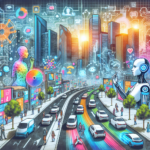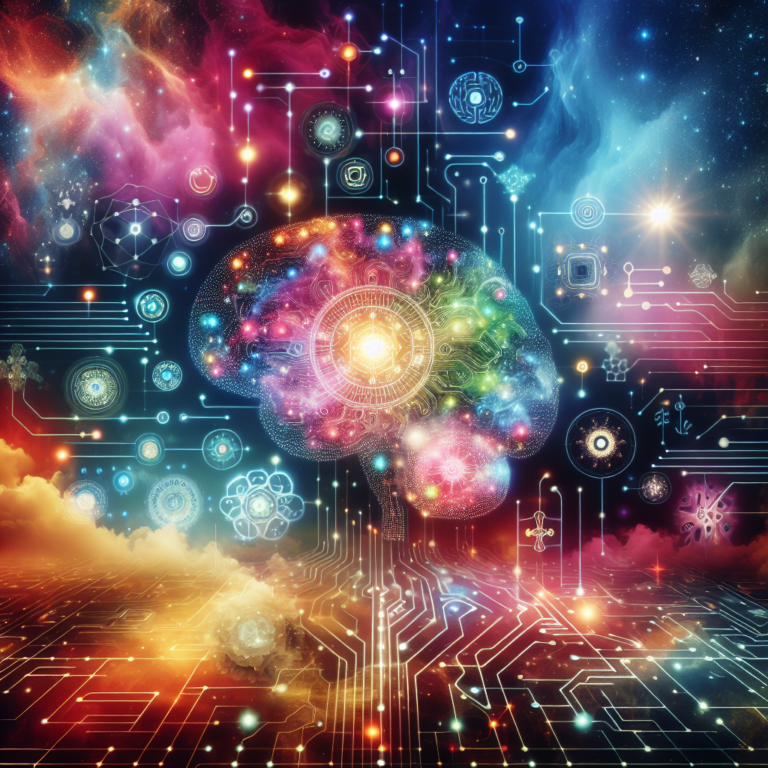OpenAI’s Enthusiasm for Superintelligence AI in 2025: What Lies Ahead
As we step into 2025, excitement around superintelligence AI is reaching new heights, with OpenAI at the forefront. This year promises substantial advancements in artificial intelligence (AI), and co-founder and CEO Sam Altman has shared his visionary insights that fuel discussions about the future of technology.
Looking Back at Progress Toward AGI
In a recent blog entry, Altman celebrated two years of ChatGPT, a revolutionary AI model launched in November 2022. He took this moment to reflect on OpenAI’s goal of developing artificial general intelligence (AGI), highlighting AI systems that surpass human intellect. Furthermore, he elaborated on the company’s ambitions concerning superintelligence, which would mean AI capabilities that significantly exceed those of humans.
One of his noteworthy statements was, “We are now confident we know how to build AGI as we have traditionally understood it.” This exclamation highlights OpenAI’s optimism about evolving AI technology; however, Altman did not specify a timeline for achieving AGI in his post.
Forecasts for AI’s Workforce Integration
Altman hinted at groundbreaking developments in 2025, predicting that AI agents could “join the workforce” this year. This prospect could revolutionize corporate operations, indicating that autonomous or semi-autonomous AI assistants may assume responsibilities once held by humans, minimizing the need for constant human supervision.
Implications for Businesses Bringing in Superintelligence AI
- Companies may experience enhanced productivity as AI agents take on a range of roles.
- Workers might collaborate with AI, leading to changes in their job functions.
- Businesses could gain a competitive advantage by leveraging AI to improve operational efficiency.
Diving into the Future of Superintelligence
In his closing remarks, Altman made intriguing assertions about the goal of superintelligence. He remarked, “We are beginning to turn our aim beyond that, to superintelligence in the true sense of the word.” While he acknowledged that existing products are impressive, OpenAI is eager for a visionary future where superintelligent tools could dramatically advance scientific discovery and innovation, unlocking unmatched levels of abundance and prosperity.
Although these ideas may sound like science fiction, Altman believes that recognition of this potential will emerge within a few years. He emphasized the importance of exercising caution while maximizing societal advantages, asserting that OpenAI’s innovative mission must go beyond conventional corporate goals.
Wider Implications for Society with Superintelligence AI
On the same day, Joshua Achiam, OpenAI’s head of mission alignment, shared concerns regarding the societal effects of AI advancements. He emphasized that society is currently unprepared for how AI might disrupt long-standing beliefs about politics, economics, and social interactions. Achiam’s insights serve as a cautionary reminder of the ways rapidly advancing AI technology could significantly reshape everyday life.
He elaborated on how these advancements might impact:
- Domestic and international political realms
- The efficiency of markets during transitions
- The rate of technological progress
- Social interactions and emotional dependencies
Responses to OpenAI’s Vision for Superintelligence AI
The reactions to Altman’s remarks have ranged from optimism to skepticism. Many observers remain divided between those who support OpenAI’s daring vision for AI advancements and those who are doubtful about the feasibility of these aspirations. This mixed response underscores the ongoing debates within the tech community regarding the trajectory and consequences of AI.
For example, McKay Wrigley, who founded a skills development platform, noted on social media that the timelines surrounding AGI have evolved, now shifting focus to superintelligence AI (ASI). Others have made even bolder predictions, foreseeing advancements—like colonizing Mars—by the end of the current presidential term.
The Dialogue Surrounding Universal Basic Income
The discussion often returns to universal basic income (UBI), suggesting it as a potential solution for economic stability in a future where many jobs may be automated. Notable figures, including Altman, advocate for UBI as a way to mitigate economic inequalities exacerbated by widespread AI automation.
Critiques and Warnings about Superintelligence AI
While much excitement surrounds OpenAI’s announcements, skepticism also exists. Gary Marcus, a prominent critic in the field, pointed out areas where OpenAI’s recent innovations have not yet achieved true AGI capabilities. He noted that many leading experts in AI believe the industry could face diminishing returns if it only scales existing large language models (LLMs).
Furthermore, Benjamin Riley drew parallels between OpenAI and the notorious Enron scandal, suggesting that troubling signs indicate deeper issues within OpenAI. Such critiques offer a necessary counterbalance to the optimistic visions, reminding the community of the challenges and risks tied to rapid technological advancements.
Caution Regarding AI Agents in the Workplace
The prospect of introducing AI agents into the workforce has raised concerns among industry experts. Ed Zitron, a public relations manager and AI critic, urged caution, reflecting sentiments shared by others who advise against placing too much trust in untested technologies.
As 2025 unfolds, anticipation around AGI and superintelligence AI grows. The discussions led by OpenAI’s leadership provide a lens into a future where AI could play a crucial role in transforming industries, economies, and social norms.
With AI advancements progressing rapidly, the implications for the workforce, economy, and society will be significant. Navigating these changes carefully and responsibly will be essential to ensure that the benefits of superintelligence AI technology are distributed fairly and equitably for all. 🤖




0 Comments